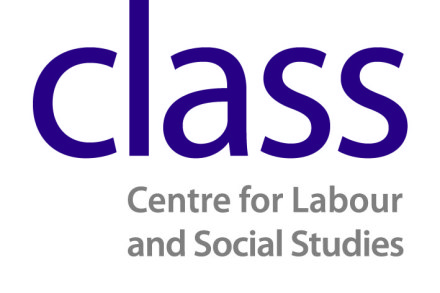
Hello Labourlisters, and welcome to my first weekly column in conjunction with Class and LabourList. And what better occasion to begin than at the end of party conference season: a time when the country’s best third-sector organisations come together to decide where to situate their stalls in order to get the most sign ups to their mailing lists. Or, if it’s Tory conference: sell the most Margaret Thatcher cufflinks. Truly it is democracy at its finest.
So what have we learned from the party conferences this Autumn? Well originality is apparently not my strong point, and to that end I’ve come to the same conclusion as everybody else: that there are large swathes of the electorate who are disillusioned, angry, alienated from politics, and feeling ripped off and unrepresented. Unfortunately this conclusion, which is an axiom to most and an emerging point of discussion for the broadsheet press (particularly when it’s used as an explanation for the rise of UKIP), seems to have largely passed our political leaders by.
There was a palpable sense of a bullet dodged at Labour conference after the Scottish referendum, and inadequate interest in why nearly half of Scotland’s population decided they’d rather live in a foreign country than be tied to Westminster. Sure, the leaders called for change – but you got the sense that they were only calling for change because they thought that’s what you have to do to make sure things stay the same.
Labourlist’s El Presidente Mark Ferguson had the unfortunate duty of going to Tory conference, where he reported an atmosphere of “cheery resignation.” If David Cameron’s oddly upbeat speech was anything to go by, Mark was right – and I have to wonder if that’s because the Tories feel they have won the argument on austerity even if they lose the next election. My own anti-Tory bias leads me to conclude that they’re aware of high levels of political disillusionment, but they don’t really care as long as the electorate let them get on with it.
Finally, Nick Clegg branded the Lib Dems “the party of education,” a claim so ridiculous I won’t even bother to address it. The pundits seem to think Clegg did rather well, but I must confess I found his bizarrely frenetic delivery so off-putting that I couldn’t really concentrate on policy. Nevertheless, does it matter? We all know Lib Dem policies are just tokens they redeem in exchange for power anyway.
The point of Labourlist is to focus on Labour policy, but I’d rather not look at political apathy through the lens of Labour. The sense of disillusionment goes way beyond the Labour Party, beyond even Westminster, and stretches to the entire establishment. One could even argue there is a global demand for people-focused societies, given the international social movements, with their demands for better public services and true democracy, which have emerged since the financial crisis of 2008. Labour always gets disproportionate flak at a time of distrust in politics, because it is expected to stand up for those who are distrusting; but it’s important to recognise the magnitude of the problem instead of pinning it all on the last 4 years of Labour policy. There need to be big answers to big questions.
At this point I am going to opportunistically bring up the fact that Class is having its annual conference on 1 November. This will be a chance to discuss radical progressive policies, like public ownership, meaningful improvements in living standards, and better rights for trade unions, minorities and civil society. Unlike party conferences, Class conference won’t be shackled by the fear of how the Daily Mail might react to what is said; it will be a place for debating the kind of society we want to build with the people who have the power and ideas to build it. Speakers include Owen Jones, John Trickett, Stewart Wood, Polly Toynbee, Josie Long, George Eaton, more MPs than I care to mention and the general secretaries of at least six trade unions. Even Mark Ferguson himself is rumoured to be putting in an appearance (calm thyselves).
With the People’s Assembly restarting, a group of mothers occupying council houses and a TUC march on the horizon, the appetite for change seems to be growing again. But unless we have some idea of what we want that change to look like, we won’t get anywhere except for unnerving Clacton by-elections. Class conference is a chance to turn the thirst for change into something concrete that politicians can use and run with. I hope you join us.
Ellie Mae O’Hagan is the Media and Communications Officer at Class




More from LabourList
Labour to Win announce recommendations for NEC candidates
Delivering in Government: your weekly round up of good news Labour stories
‘A fairer Wales for the future – a new chapter for Welsh Labour’